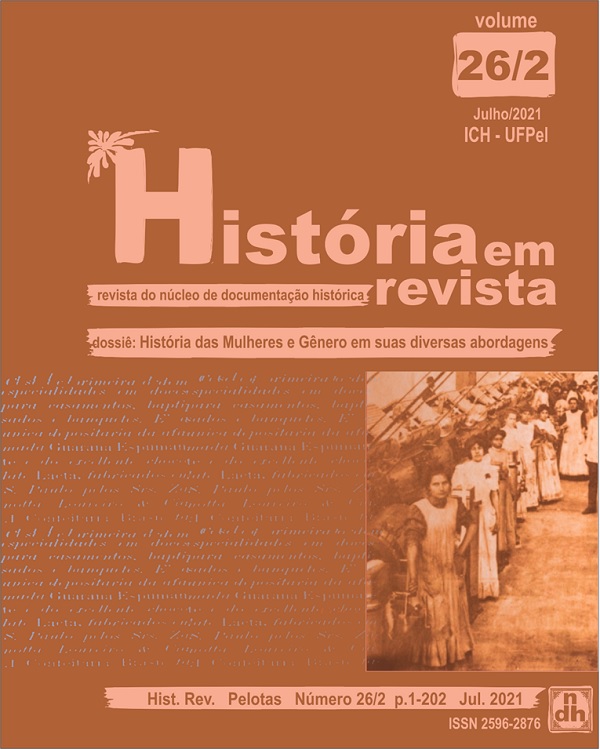“COMPREENDAMOS, PARTILHEMOS DOS SOFRIMENTOS DA MULHER ESCRAVA”: DUAS IRMÃS E O ABOLICIONISMO EM PELOTAS E RIO GRANDE (1880-1888)
Resumo
Resumo: O presente artigo tem como objetivo discutir e problematizar a participação de mulheres na campanha abolicionista em Pelotas e Rio Grande, cidades localizadas ao sul do Brasil, durante os anos 1880 e 1888, focando especialmente na atuação de duas irmãs, Julieta e Revocata de Mello[1], que deixaram suas ideias sobre a abolição registradas na imprensa. Angela Davis escreve sobre as norte-americanas na luta pela libertação dos escravizados e demonstra que essa experiência teve um caráter dialético, já que elas trabalharam em prol da causa antiescravagista ao mesmo tempo em que defendiam os direitos políticos das mulheres. Embora predominantemente masculino, o abolicionismo também contou com a colaboração feminina e o conceito de gênero como categoria analítica é relevante para pensar as ações por elas desempenhadas no movimento e o que isso representou para elas em termos políticos.
Palavras-chave: Movimento abolicionista. Gênero. Mulheres.
Abstract: This article aims to discuss and problematize the participation of women in the abolitionist campaign in Pelotas and Rio Grande, cities located in the south of Brazil, during the years 1880 and 1888, focusing especially on the activities of two sisters, Julieta and Revocata de Melo, who left their ideas about abolition recorded in the press. Angela Davis writes about the American women in the struggle for the liberation of the enslaved and demonstrates that this experience had a dialectical character, since they worked for the anti-slavery cause while defending the political rights of women. Although predominantly male, abolitionism also relied on female collaboration and the concept of gender as an analytical category is relevant to thinking about the actions they performed in the movement and what this represented for them in political terms.
Keywords: Abolitionist movement. Gender. Women.
“Let us understand, let us share in the suffering of slave women”: two sisters and abolitionism in Pelotas and Rio Grande (1880-1888)
[1] Na historiografia, o sobrenome varia entre Melo e Mello, mas nas fontes consultadas a grafia utilizada é Mello e por esse motivo, utilizarei Mello.
Downloads
Autores que publicam nesta revista concordam com os seguintes termos:
1. Autores mantém os direitos autorais e concedem à revista o direito de primeira publicação, com o trabalho simultaneamente licenciado sob a Licença Creative Commons Attribution que permite o compartilhamento do trabalho com reconhecimento da autoria e publicação inicial nesta revista.
2. Autores têm autorização para assumir contratos adicionais separadamente, para distribuição não-exclusiva da versão do trabalho publicada nesta revista (ex.: publicar em repositório institucional ou como capítulo de livro), com reconhecimento de autoria e publicação inicial nesta revista.
3. Autores têm permissão e são estimulados a publicar e distribuir seu trabalho online (ex.: em repositórios institucionais ou na sua página pessoal) a qualquer ponto antes ou durante o processo editorial, já que isso pode gerar alterações produtivas, bem como aumentar o impacto e a citação do trabalho publicado.










